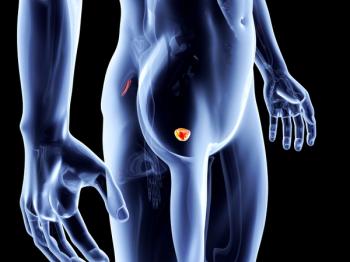
Targeting Antigens in the Development of Vaccines for Cancer
Analyzing the KRAS mutation across various cancer types may be a worthwhile target when using a cancer vaccine or immunotherapy, says Catherine J. Wu, MD.
Defining alternative, targetable antigens that may have an impact on treatment is a key area in the research of cancer vaccines, especially for patients with tumors that have a low mutation burden, according to Catherine J. Wu, MD.
Wu, chief of the Division of Stem Cell Transplantation and Cellular Therapies and a Lavine Family Chair for Preventative Cancer Therapies at Dana-Farber Cancer Institute, and a professor of Medicine at Harvard Medical School, spoke with CancerNetwork® about potential antigen targets that may enhance the efficacy of vaccine-based treatment for patients with cancer.
She said that neoantigens have demonstrated promise as a target for cancer vaccines and that the KRAS mutation may be an actionable target with this strategy in those with gastrointestinal cancers and other solid tumor types. However, she stated that using vaccines to treat patients with cancers that harbor a lower mutation burden is a current challenge in the field.
Transcript:
Neoantigens have shown a lot of promise as antigens to target for immunotherapy. There aren’t many shared neoantigens that have been well vetted out. I would say that the front-runner right now is the KRAS mutation that’s been observed in a lot of gastrointestinal cancers, myeloma, and some of the other solid tumors. There has been considerable progress in vetting these targets not only for cancer vaccines but also for cellular therapy. I do anticipate that this is going to be an area of focus in the time to come.
For cancer vaccines to work, we need to have knowledge of the antigens that we’re going to use to target and use the vaccine to stimulate an antigen-specific immune response. Currently, the areas of challenge are those cancers that have either a lower mutation burden, defined as those that have lower single nucleotide variants, or a low number of insertion deletions. We do know that these lower mutation burden tumors, in all probability, have other types of genomic alterations, but there is a gap in our computational pipelines in terms of how we can identify them. For example, they may be gene fusions, they may be the sequelae of structural variants, they could also be in alternate open reading frames, or they could be related to splice variants. And so, the major thrust of the current ongoing research is how we can best define these alternate antigens that may be impactful for these lower mutation burden tumors that are still an unmet need. [Additionally], better therapies are required.
Newsletter
Stay up to date on recent advances in the multidisciplinary approach to cancer.














































